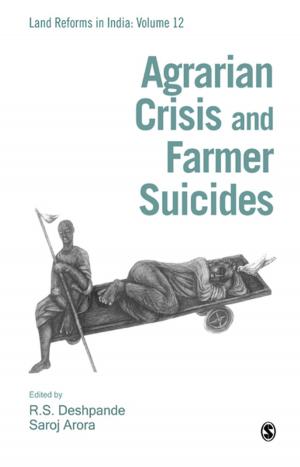The Politics of Belonging in the Himalayas
Local Attachments and Boundary Dynamics
Nonfiction, Social & Cultural Studies, Social Science, Anthropology| Author: | ISBN: | 9788132119395 | |
| Publisher: | SAGE Publications | Publication: | May 5, 2011 |
| Imprint: | Sage Publications Pvt. Ltd | Language: | English |
| Author: | |
| ISBN: | 9788132119395 |
| Publisher: | SAGE Publications |
| Publication: | May 5, 2011 |
| Imprint: | Sage Publications Pvt. Ltd |
| Language: | English |
The Politics of Belonging in the Himalayas is an exploration of the various forms of bonds and attachments by which individuals are bounded to their collectivities and localities in the Himalayan regions of India and Nepal. To grasp these phenomena adequately, the book proposes a new analytical approach through the concept of belonging.
The book is based on several case studies carried out by anthropologists, political science scholars, historians, and geographers who help bring together rich ethnographical data from different regions of the Himalayas. Organized in three parts, it describes the interactions between local forms of belonging and new forms of classification and governance imposed through national integration and transnational modes of politics.
The book analyses different types of societal formations in various historical periods and captures the ongoing change in them. Fundamentally, this collaborative publication is an attempt to go beyond (and beneath) identity constructions and to call into question the idea of permanence implied by the term.
The Politics of Belonging in the Himalayas is an exploration of the various forms of bonds and attachments by which individuals are bounded to their collectivities and localities in the Himalayan regions of India and Nepal. To grasp these phenomena adequately, the book proposes a new analytical approach through the concept of belonging.
The book is based on several case studies carried out by anthropologists, political science scholars, historians, and geographers who help bring together rich ethnographical data from different regions of the Himalayas. Organized in three parts, it describes the interactions between local forms of belonging and new forms of classification and governance imposed through national integration and transnational modes of politics.
The book analyses different types of societal formations in various historical periods and captures the ongoing change in them. Fundamentally, this collaborative publication is an attempt to go beyond (and beneath) identity constructions and to call into question the idea of permanence implied by the term.















